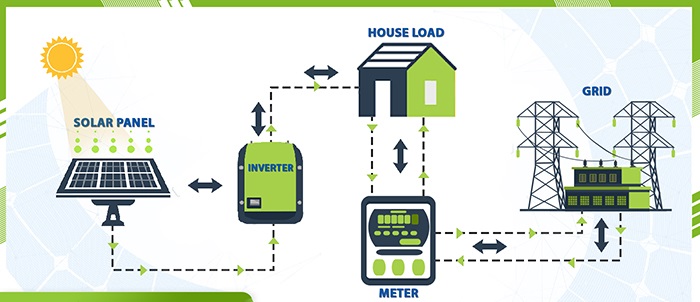Net Metering In Pakistan:
Net metering in Pakistan is a billing mechanism that credits solar energy system proprietors for the power they add to the grid. For instance, if a private client has a PV framework, it might create more power than the home uses amid sunlight hours. If the house is net-metered, the power meter will run in reverse to give a credit against what power is used around evening time or different periods where the home’s power utilize surpasses the system’s yield. Clients are only charged for their “net” energy utility.
The advanced digital meter keeps running in both bearings to accommodate power generated at the customer’s home. Net metering permits clients to produce their power effectively and efficiently.
A bi-directional electricity meter is integrated with the hybrid or on-grid solar panels for net metering. These Solar Panels must be attached with a three-phase electricity connection to inject and offset the excessive energy to the national grid. You get credits against the amount of energy you sell to the grid. You can use the credits to get free electricity units.
The net metering system in Pakistan is relatively a new concept which is highly beneficial for solar system owners. As the country is blessed with ample sunlight, solar panels generate more electricity in the day than our need, this excessive energy will be of no use if a net metering compliant solar system has not been installed on your rooftop. But if you have the said facility, you can sell this additional amount of electricity to the grid and can earn electricity units in the monthly bill. Net metering is a new yet legal practice in the country as NEPRA had issued regulations about it a few years back. Whether you are a domestic or commercial consumer, net metering will be equally advantageous.
The following guidelines explain the trends in state and utility net metering measures:


